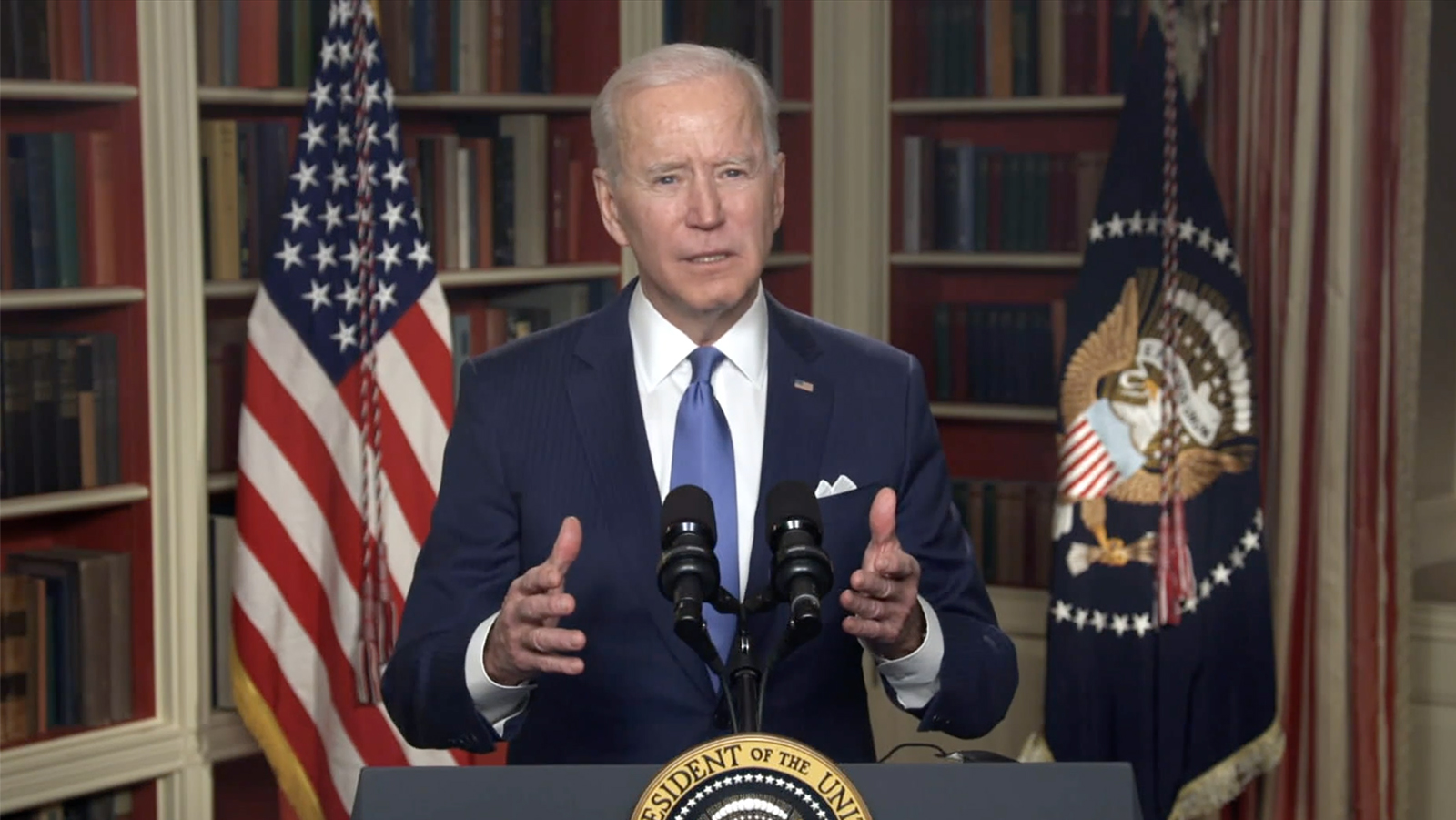
WASHINGTON (RNS) — President Joe Biden signed an executive order on Sunday (Feb. 14) reestablishing the White House Office of Faith-Based and Neighborhood Partnerships, undoing former President Donald Trump’s efforts to reshape an agency that went largely unstaffed for most of his tenure.
In a statement accompanying the announcement of the executive order, Biden echoed his recent remarks to the National Prayer Breakfast, bemoaning widespread physical and economic suffering due to the coronavirus pandemic, racism and climate change. He added that those struggling “are fellow Americans” and are deserving of aid.
“This is not a nation that can, or will, simply stand by and watch the suffering around us. That is not who we are. That is not what faith calls us to be,” he said. “That is why I’m reestablishing the White House Office of Faith-Based and Neighborhood Partnerships to work with leaders of different faiths and backgrounds who are the frontlines of their communities in crisis and who can help us heal, unite, and rebuild.”
He added: “We still have many difficult nights to endure. But we will get through them together and with faith guiding us through the darkness and into the light.”
The White House announced the appointment of Melissa Rogers, a First Amendment lawyer and senior fellow at the Brookings Institution, to oversee the office, as she did in former President Barack Obama’s second term. Rogers will also serve as senior director for faith and public policy in the White House Domestic Policy Council.
RELATED: Cultivate common ground regarding faith in public life, says Melissa Rogers
“It’s configured very differently than it was in the Trump years, a little bit differently than it was during the Obama-Biden administration,” Rogers told Religion News Service in an interview Monday.
Among the new aspects of what the Biden White House is calling the “Partnerships Office,” Rogers said, are her seat on the Policy Council and the creation of a deputy director.
The office’s deputy director will be Josh Dickson, who ran faith outreach for the Biden-Harris campaign. Trey Baker, who worked as the national director of African American Engagement on Biden’s campaign, will serve as the White House office’s liaison to Black communities, a role that includes Black religious groups.
Dickson, who, along with Rogers, officially started his job on Sunday, said in the same interview that he and Rogers are seeking to enhance existing collaborations between government and faith organizations to address the COVID-19 pandemic.
“We’re currently developing materials that we’re working on getting out far and wide that just share information and facts about the vaccine and that help provide great resources for COVID education,” he said.
Besides fighting the pandemic, the office will focus its efforts on helping disadvantaged communities, advancing global humanitarian work, strengthening pluralism and protecting “cherished guarantees of church-state separation and freedom for people of all faiths and none.”

President Joe Biden addresses the 2021 National Prayer Breakfast. Video screengrab
Rogers said the office would also work with religious and secular partners to address inequities in economic and educational opportunities.
“We’ll be engaged in that particular effort, as well as others, in breaking down silos and communicating across agencies to try to find out what we can do with our partners to ensure that we really attack these disparities, which are part of the scourge of systemic racism,” she said.
The announcement noted that the office will work with Centers for Faith-Based and Neighborhood Partnerships that are embedded in 11 agencies across the federal government. “These issues are ones that every agency, I think, can play a role,” Rogers said.
The faith-based office has been called by different names since President George W. Bush established it, and different presidents have granted religious and secular organizations varying degrees of access.
Biden will return the office to the name it had during the Obama administration, when Rogers led it from 2013 to 2017.
Under President Trump, the office went largely unstaffed until 2019, when he tapped Pentecostal preacher and longtime Trump adviser Paula White to oversee what he called the Faith and Opportunity Initiative. Until then, much of Trump’s religious outreach involved informal meetings with mostly Christian faith leaders — especially a core group who became known as his unofficial evangelical advisers.
The two previous administrations made concerted efforts to connect with a wide array of faith groups, with bipartisan and interreligious access through the faith-based office, related cabinet-level offices and task forces.
Rogers has been critical of what she saw as Trump’s disproportionate engagement with evangelicals, saying in 2017 that “the continuance of this Evangelical Executive Advisory Board, even unofficially, and the apparent failure to have any comparable entity that is open to non-evangelicals, sends a troubling message that the administration prefers evangelicals over other people of faith.”
RELATED: Biden should reestablish the faith-based office
Rogers also opposed Trump administration plans to remove the requirement that faith-based social service providers offer a secular alternative to people seeking their assistance.
“You can’t benefit from protections you don’t know you have,” she tweeted in January 2020. “The religious liberty of social service beneficiaries is as important as the religious liberty of faith-based providers.”
Rogers came to Biden’s defense in August when she said Trump made “wild assertions” about the former vice president during the 2020 campaign. She said the claims by Trump that Biden would have a “no religion, no anything” approach to faith if he became president “could not be more wrong.”
